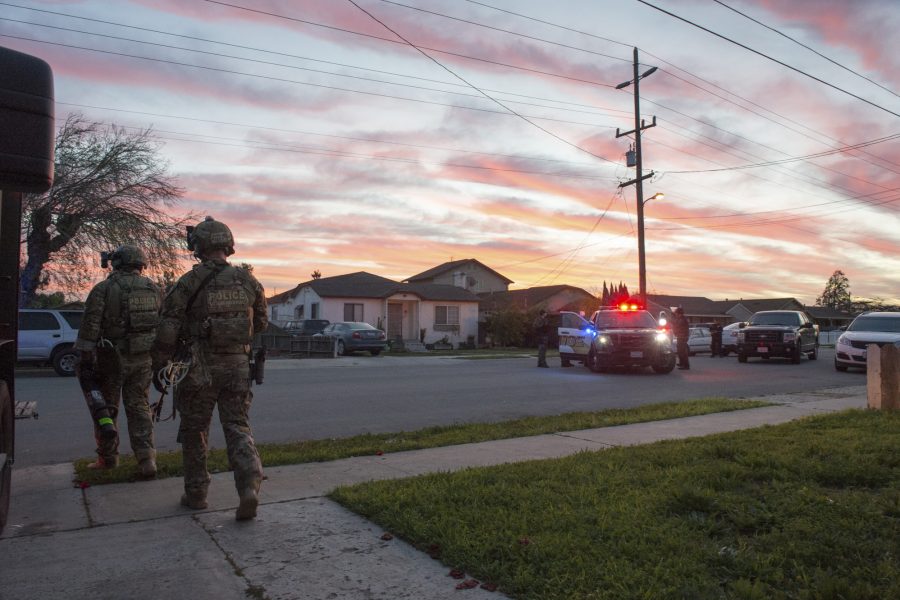On January 31, 1988, 27 year-old Karen Toshima was enjoying an evening with her boyfriend in Westwood Village. She had just gotten a promotion at work and like thousands of other Angelenos did almost every weekend decided that Westwood was the place to be. After dinner, Karen and her date walked along Broxton Ave when several shots rang out. Karen collapsed with a fatal bullet wound to the head and later died.
Durell Dewitt Collins, a 21 year-old member of the Westside Rollin 60’s Crips was also in Westwood that evening. Rather than celebrating, he was looking for Tyrone Swain, a rival Mansfield Gangster Crip, to kill. When he found him, Collins opened fire, missing Swain and instead killing Toshima. Collins was convicted and sentenced to 27 years to life in state prison. Under new rules implemented under Prop 57 he has served 20 years and is over 50 years of age, making him eligible for “elderly” parole which he was granted in July 2022.
Swain was lucky that night, although he was later arrested and convicted of a murder he committed. He began his sentence in January 2002 and, although initially scheduled for parole in 2027, he will be eligible for elderly parole in January 2023 thanks to Prop 57.
Today, the West Coast’s largest cities are experiencing an increasing level of crime and violence not seen since the late 1980’s and early 1990’s – which finally ended in 1994 with the passage of Three Strikes as well as gang and firearm use sentencing enhancements that served to both remove violent gang members from the streets and deter others.
Enhancements and sentences that are now being rolled back due to so called criminal justice reforms like Props 47 and 57. And the legislature is not finished. During the last legislative session, the Assembly Public Safety Committee voted to reduce the penalty for possession, use, or causing injury with a firearm from a 10-20-25 year enhancement respectively to just 1-2-3. Although it failed in the Appropriations Committee the Public Safety Committee Chairman Reggie Jones-Sawyer has vowed to try again.
San Francisco is bracing for another spree of organized retail theft. Mayor London Breed is pleading for shoppers to return to Union Square shops, and police are out in force in order to restore a sense of safety to would be visitors. Those shoppers better park in a secure parking garage as car break ins are at epidemic levels. The SF Chronicle “Break-In Tracker” tracks thousands of thefts from vehicles every month.
Last month Cotopaxi, the Salt Lake City based progressive outdoor retailer, closed its flagship San Francisco store due to repeated window smash burglaries and shoplifting. An infuriated Davis Smith, Cotopaxi CEO called San Francisco a “city in chaos”. A month later, Smith, after meeting with members of the SF Board of Supervisors, apologized for “slamming” the public safety situation in San Francisco. Apparently, in San Francisco, victims of crime now have to apologize if their frustration is taken as too political. The store remains open and Smith is paying for its own full time security staff.
The San Francisco location of Target makes 10 shoplifting arrests a day and taken with their other locations nationwide loses $400 million a year to theft. Actually they don’t – the losses are passed on to consumers.
A few weeks ago Paul Pelosi, husband of Speaker of the House Nancy Pelosi, was assaulted with a hammer in his Pacific Heights mansion. Assaults in one’s home are rare but burglary isn’t. In 2021 San Franciscans experienced 6,709 burglaries and another 5,292 so far in 2022.
San Francisco isn’t alone.
This week in Portland OR, Rains PDX closed its doors for good after experiencing 15 window smash break-ins in addition to an onslaught of shoplifts. The owner, Marcy Lanndolfo, left a note on the door which says in part – “the city is in peril”. One wonders if the progressive backlash will force her to reopen as Cotopaxi had to in San Francisco – or risk the wrath of the progressive community and its political leadership.
Meanwhile, leases still have to be paid.
Other retailers in downtown Portland have also left. Nike, Starbucks, Cracker Barrel, and Bed Bath and Beyond. pdxeater.com is tracking restaurant, bar, and food cart closings – so far in 2022 alone over 70 have shuttered. And this is during the so-called recovery.
In Seattle 450 street level retailers have closed including a one city block-sized Macy’s. Five Starbucks have recently closed due to thefts and safety concerns although one closure may have been due to its recent unionization vote. The now notorious “Blade” – nine blocks of lawlessness – has yet to recover.
The cities of Los Angeles, San Francisco, Portland, and Seattle once were the West Coast alternative to the declining cities of the Midwest. Technology, retail, innovative and iconic businesses, music, movies, entertainment, and unrivaled natural beauty. Sure, there was plenty for the conservative media to poke fun at. Counterculture politics, high taxes, techies, tree huggers, and more.
But now it’s turned ugly.
West Coast Cities are no longer safe and progressive politicians have turned thieves and murderers into victims, and crime victims into – at best oppressors – and at worst a cipher, nothing.
Steve Smith is a senior fellow in urban studies at the Pacific Research Institute.


